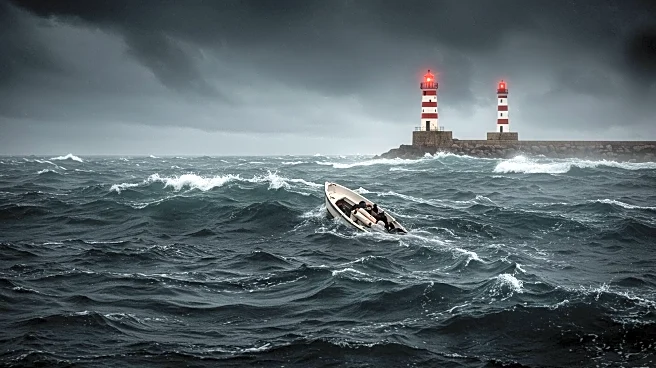What's Happening?
A tragic incident occurred off the Italian island of Lampedusa, where a migrant boat carrying nearly 100 individuals capsized, resulting in at least 26 deaths and leaving a dozen people missing. The United Nations refugee agency reported that 60 survivors were rescued and brought to a center in Lampedusa. The boat, which departed from Libya, faced difficulties when one of the two vessels began taking on water, leading to the transfer of passengers to another boat that eventually capsized due to overloading. This incident adds to the 675 migrant deaths reported this year in the central Mediterranean crossing, a perilous route from northern Africa to southern Europe.
Why It's Important?
The Mediterranean crossing remains one of the most dangerous migration routes globally, with thousands of deaths over the past decade. This latest tragedy underscores the ongoing humanitarian crisis and the urgent need for international intervention and policy reform to address the safety and rights of migrants. The increasing number of arrivals in Italy, up 16% from the previous year, highlights the growing pressure on European countries to manage migration flows and provide adequate support to those seeking refuge.
What's Next?
Authorities continue to search for survivors, and the incident may prompt renewed calls for international cooperation to improve safety measures and support for migrants. The tragedy could lead to discussions among European leaders on enhancing rescue operations and addressing the root causes of migration from Africa.
Beyond the Headlines
The incident raises ethical questions about the treatment of migrants and the responsibilities of nations to provide safe passage and humanitarian aid. It also highlights the broader geopolitical challenges in addressing migration and the need for comprehensive solutions that consider the socio-economic factors driving people to undertake such dangerous journeys.











